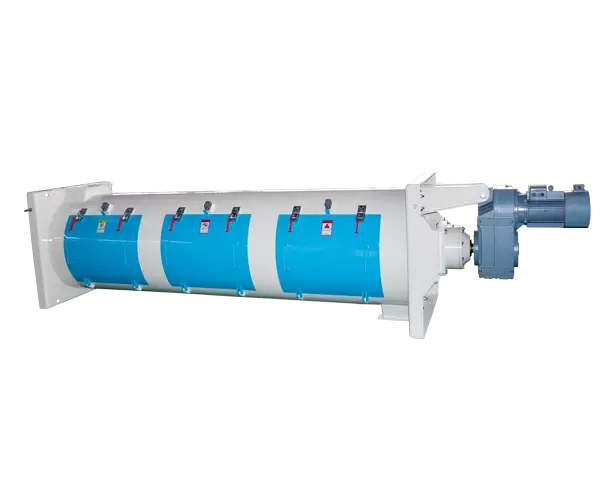Feed pellet mill is a commonly used equipment in the livestock and poultry breeding industry. Its working environment has an important impact on production efficiency and product quality. Feed pellet mill is usually used to process raw feed into pellet form for better digestion and absorption by livestock and poultry and improve feed utilization. In the working environment of feed pellet mill, there are many factors that need to be considered, including air quality, temperature, humidity, noise and safety.

First of all, the working environment of the feed pellet mill should be well ventilated. During the working process of the feed pellet mill, a large amount of dust and exhaust gas will be generated. If the environment is poorly ventilated, these dust and exhaust gas will cause harm to the health of workers and affect the normal operation of the machine. Therefore, sufficient ventilation facilities should be ensured around the feed pellet mill to eliminate dust and exhaust gas in a timely manner.
Secondly, temperature and humidity are also important factors affecting the working environment of feed pellet mill. During the production process, the temperature and humidity of the working area need to be controlled to ensure that the equipment can operate normally and the quality of the feed pellets produced is stable. Especially in humid environments, it is necessary to strengthen the anti-rust and anti-corrosion work of the equipment to extend the service life of the equipment. At the same time, a dry environment is also beneficial to the quality and preservation of feed pellets.
In addition, the working environment of the feed pellet mill should be kept clean and tidy. During the working process of the machine, a large amount of waste materials and debris will be generated. If the environment is not tidy, these waste materials and debris will accumulate around the machine, which will not only affect the normal operation of the machine, but also increase the workload of cleaning. Therefore, waste materials and debris around the machine should be cleaned regularly to keep the working environment tidy.
In addition, noise is also a problem that needs to be taken into consideration in the working environment of feed pellet mill. The feed pellet mill will produce a certain amount of noise during operation. If exposed to a high-intensity noise environment for a long time, it will easily cause damage to the operator's hearing. Therefore, effective sound insulation measures need to be taken to reduce the impact of noise on operators.
Finally, safety is one of the most important considerations in a feed pellet mill work environment. Operators need to receive relevant safety training, understand the operating procedures and safety precautions of the equipment, and wear appropriate protective equipment to ensure that no accidental injuries occur during work. At the same time, the equipment itself also needs to be equipped with safety protection devices, such as emergency stop buttons, protective covers, etc., to ensure that it can be shut down in time in an emergency and to ensure the safety of operators.
In general, the working environment of feed pellet mill needs to comprehensively consider factors such as air quality, temperature, humidity, noise and safety. Only in a good working environment can the feed pellet mill operate normally and efficiently, produce high-quality feed pellets, and contribute to the development of the livestock and poultry breeding industry.